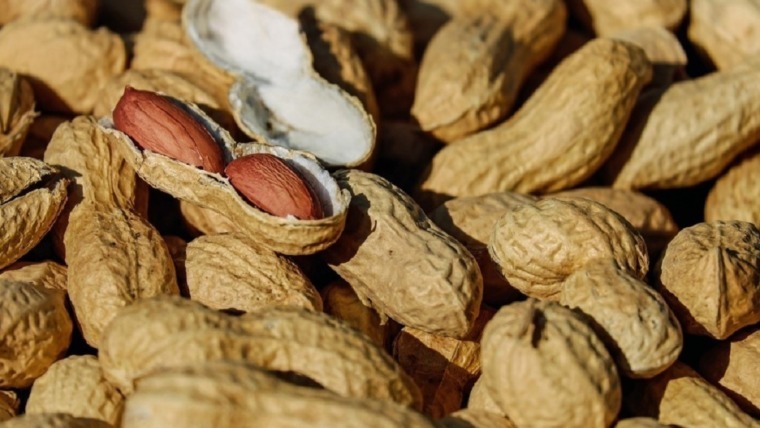
Written by Connie Rogers bitesizepieces.net and skinhealthfromwithin.com
It turns out our skin can be making us look older than we really are. A body lacking exercise, a whole food diet, or riddled with anxiety may struggle to maintain muscle mass and skin elasticity.
We know the skin sends feedback to the brain regarding stress and can communicate with the central nervous system through hormones. So, not only does stress stand in the way of the skin's ability to repair itself, but studies show that high cortisol levels hinder our mood and ability to sleep and increase the risk for DNA damage and also interfere with DNA repair.
Skin is a neuroendocrine organ which means there is crosstalk between skin, brain, endocrine, and the immune system. (1) So, what if it was advantageous to embrace self-care mechanisms that can keep your skin from appearing lifeless and old, OR irritated, tired, and swollen? Here’s what I found.
Everyday exposures that tend to increase the nervous breakdown of our skin include smoking, environmental pollution, and ultraviolet radiation. (2)
Even scarier are a variety of chemical agents, never approved, able to attack our skin 24/7. These include surfactants, preservatives, and fragrances that damage the stratum corneum, the underlying epidermis, and the circulatory system through the skin. (3)
Known pollutants in some famous skincare products include mercury found in woman's bleaching creams. Mercury can increase our risk for premature skin ageing and the nervous breakdown of our skin.
Synthetic caffeine can be found in skincare products such as store-bought shampoo, lip balm, eye cream, body scrub, body lotion, and more. These products are primarily marketed with false claims that they provide energy, alertness, or are age-defying.
‘Anti-pollutant skincare’ is a marketing term that is designed to sound safe. These products can contain unwanted chemicals that include Butylene Glycol, Dimethicone, Titanium Dioxide, Sodium PCA and many more.
"Studies have shown that stress, hormonal imbalances, and gut inflammation can impair the integrity and protective function of the epidermal barrier.”(4)
Stress Can Hide In Every Fiber Of Our Being Contributing To The Nervous Breakdown Of Our Skin.
Stress and adrenal exhaustion can lead to a cycle of chronic inflammation and monumental accelerated ageing.
"In women and men, psychological stress is associated with accelerated cellular and oxidative stress, shorter telomere length, and telomerase activity.”(5)
Chronic caffeine consumption may harm adrenals which accounts for shorter telomeres in adults. (6)
“Telomeres are dynamic chromosome-end structures that serve as guardians of genome stability.”(7) They are known to be one of the significant determinants of ageing and longevity. Studies have demonstrated a direct correlation between telomere length and life expectancy, stress levels, DNA damage, and the onset of age-related diseases. And, according to The Journals of Gerontology, we have the knowledge and opportunity to modulate ageing by making comprehensive lifestyle changes a top priority. (8)
Interestingly enough, studies have shown that persimmons have antioxidant values and help fight oxidative stress. "In addition, meditation is linked to longevity and longer telomere length, which is a proposed biomarker of human ageing.”(9)
4 Tips to Lengthen Telomeres
*Daily Exercise.
*Consume antioxidant-rich foods.
*Improve sleep habits.
*Discover healthy ways to decrease stress.
Sleep disturbances can decrease the release of testosterone by almost half. When we lose sleep, our skin loses its chance to rejuvenate and rebuild. Additionally, an imbalance in cortisol levels disrupts insulin levels, and excess glucose is a critical factor in wrinkling of the skin, robbing you of your beauty. (10) Melatonin is a hormone secreted by the pineal gland that helps inhibit oxidative stress and regulate the circadian rhythm. (11) According to Doctor Krause, exercise, moving through stress, and absorbing sunshine through the eyes during the day improve melatonin levels in the evening! Now, it gets more interesting as we continue.
Dehydroepiandrosterone (DHEA) is a hormone produced by our adrenal glands and in our brain, which was first discovered by scientists in the 1930s. DHEA's power to invigorate the immune system is closely linked to its potential to fight ageing. (12) It's the most abundant hormone in our body and crucial for skin health. (13)
What can deplete DHEA levels?
- Statin medications can lower DHEA levels and accelerate premature ageing.
- High cortisol levels can lower the body's progesterone and DHEA levels.
- Lack of vitamin D absorption from sun exposure through our skin can play a role in low levels of DHEA.(14)
- Low plasma levels of DHEA have been associated with obesity, insulin resistance, HBP, and premature ageing. The good news is, that fermented persimmon extract was found beneficial in reducing unwanted body weight. (15)
Because the skin protects us from injury and environmental toxins, its health depends on intercommunication with our gut microbiome, skin microbiome, skin immunity, and surprisingly enough, our brain.
Our immune system in our gut can influence the composition of skin microorganisms.(16) When our gut is stressed and sick, our skin is also stressed and sick. "One study indicated that small intestine bacterial overgrowth (SIBO), a condition involving inappropriate growth of bacteria in the small intestine, is ten times more prevalent in people with acne rosacea than in healthy controls.(17)
Acne is a disorder that can affect children and adults through the gut microbiome (poor diet, dehydration, and stress), immune system (poor diet and poor sleep habits), and the endocrine system (poor diet, toxic exposures, and disrupt hormones). It’s vital to eat well to maintain beautiful skin. According to Science Direct, persimmons, rich in minerals, fibre and antioxidants, are a valuable choice to aid in clearing acne. (19)
Energy drinks/ caffeine disrupt the lining of the gastrointestinal organs, increase psychopathology symptoms, and speed up skin ageing.(18) Instead, you can choose to drink clean, filtered drinking water. Water gives us energy, not caffeine.
Understanding the role of the gut microbiome and skin's immune system is key to understanding skin disorders such as psoriasis, dermatitis, rosacea, acne, and lupus.(20)
footnotes
1- https://www.ncbi.nlm.nih.gov/pubmed/21519402
2- https://www.ncbi.nlm.nih.gov/pmc/articles/PMC2929555/
3- https://pubmed.ncbi.nlm.nih.gov/24156155/
4- www.ncbi.nlm.nih.gov/pmc/articles/PMC2045620/
5- www.pnas.org/content/101/49/17312.long
6- https://pubmed.ncbi.nlm.nih.gov/28603543/
7- https://pubmed.ncbi.nlm.nih.gov/28510637/
8- https://academic.oup.com/biomedgerontology/article/73/1/39/3828300?
9- https://www.ncbi.nlm.nih.gov/pmc/articles/PMC7067861/
10- http://www.hormones.gr/503/article/article.html
11- https://www.ncbi.nlm.nih.gov/pmc/articles/PMC6826722/
12- http://www.anti-agingmd.com/dhea.html
13- http://www.ncbi.nlm.nih.gov/pmc/articles/PMC3499288/
14- https://pubmed.ncbi.nlm.nih.gov/11972301/
15- https://pubmed.ncbi.nlm.nih.gov/32115502/
16- https://www.ncbi.nlm.nih.gov/pmc/articles/PMC3115422/
17- http://www.ncbi.nlm.nih.gov/pubmed/18456568
18- https://www.ncbi.nlm.nih.gov/pmc/articles/PMC4892225/
19- https://pubmed.ncbi.nlm.nih.gov/30872359/
20- https://www.sciencedirect.com/science/article/pii/S0102695X17301011
Stopping The Nervous Breakdown Of Your Skin! Stopping The Nervous Breakdown Of Your Skin! Stopping The Nervous Breakdown Of Your Skin!



